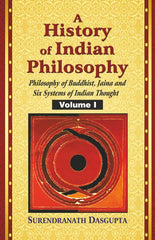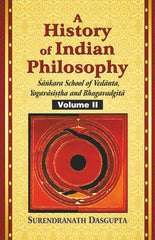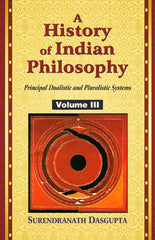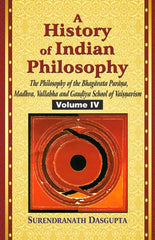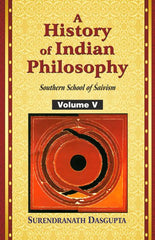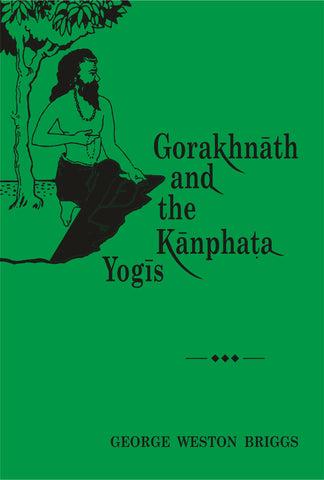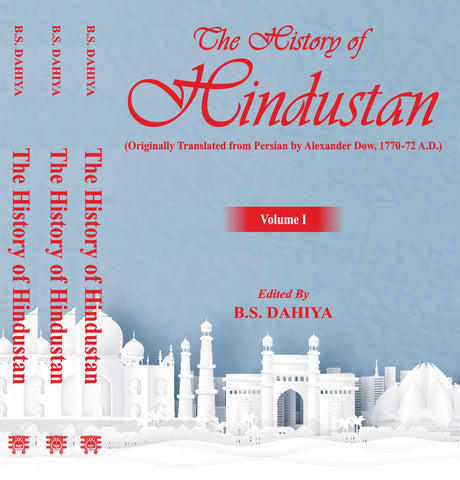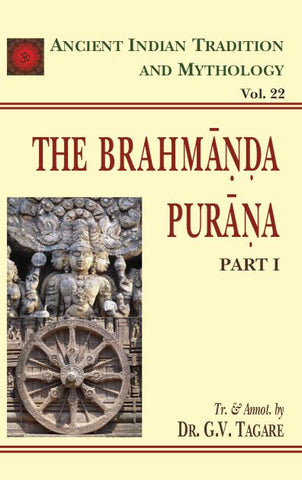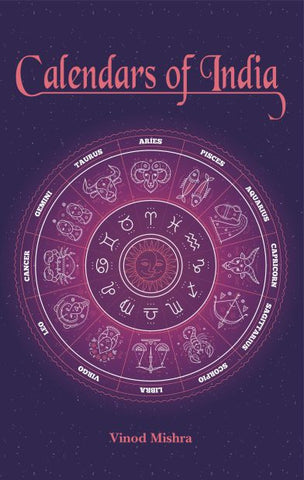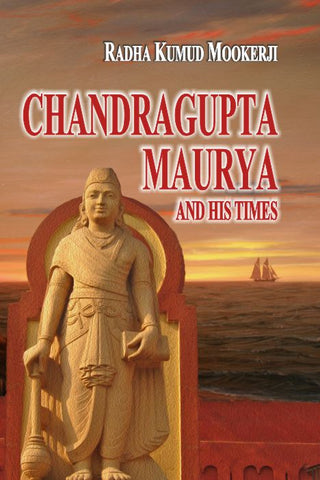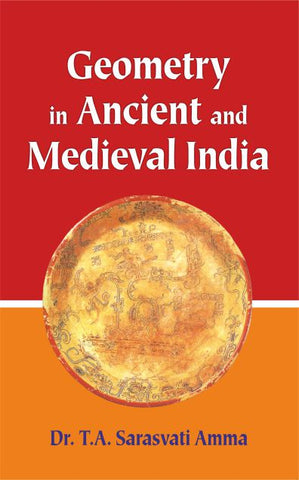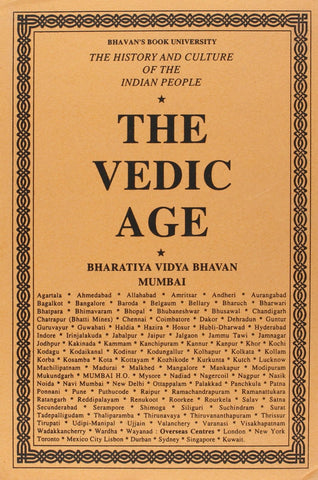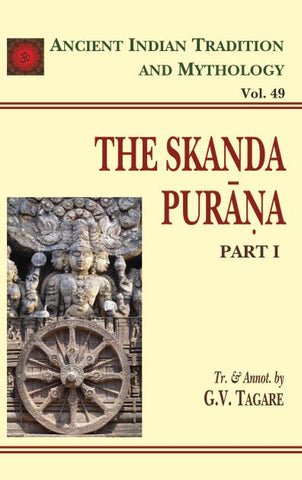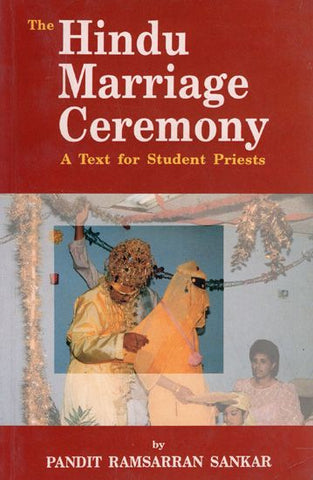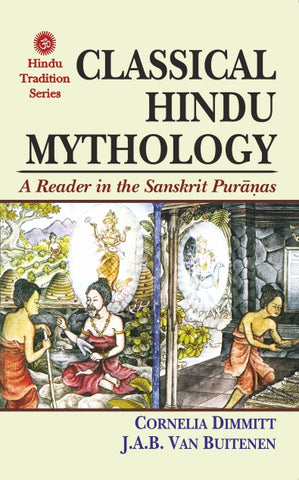Your cart is empty now.
The work appears in five volumes. Each volume is devoted to the study of the particular school of thought of Indian Philosophy. Vol. I comprise Buddhist and Jaina Philosophy and the six systems of Hindu thought, viz., Samkhya, Yoga, Nyaya, Vaisesika, Mimamsa, and Vedanta. Vol. II completes studies at the Sankara school of Vedanta. It also contains the philosophy of the Yogavasistha, the Bhagavadgita, and speculations in the medical schools. Vol. III contains an elaborate account of the principal dualistic and pluralistic systems such as the philosophy of the Pancaratra. Bhaskara, Yamuna, Ramanuja, Nimbarka, Vijnanabhiksu, and philosophical speculations of some of the selected Puranas. Vol. IV deals with the Bhagavata Purana, Madhva, and his school, Vallabha, Caitanya, Jiva Gosvami, and Baladeva Vidyabhusana. Vol. V treats of the southern schools of Saivism, viz., Saiva Siddhanta, Vira Saivism, philosophy of Srikantha, Saiva philosophy in the Puranas and in some important texts. In the words of the Oxford Journal 'the collection of data, editing and the interpretation of every school of thought is a feat unparalleled in the field of history of philosophy.
About the Author
Surendranath Dasgupta was born to a Vaidya family in Kushtia, Bengal (now in Bangladesh), on Sunday, October 18, 1885, corresponding to Dashami Shukla (i.e., the tenth day) of the month of Āśvin and coinciding with the festivals of Dussehra and Durga Visarjan. His ancestral home was in the village of Goila in the Barisal District. He studied at Ripon College in Calcutta and graduated with honours in Sanskrit. Later, in 1908, he received his master's degree from Sanskrit College, Calcutta. He got a second master's degree in Western philosophy in 1910 from the University of Calcutta.
Prof. Dasgupta married Himani Devi, the younger sister of Himanshu Rai, India's pioneer film director and founder of the Bombay Talkies movie studios. They had six children together: three daughters, Maitreyi Devi (Sen) (1914-1989), Chitrita Devi (Gupta) — both of whom became famous writers — and Sumitra Majumdar; and three sons, Subhayu Dasgupta, Sugata Dasgupta and Prof. Subhachari Dasgupta, who also left behind works valuable to nation-building. Sumitra Majumdar, the youngest and last surviving child, died in Goa in September 2008.
Dasgupta earned the Griffith Prize in 1916 and his doctorate in Indian philosophy in 1920. Maharaja Sir Manindra Chandra Nandi now urged him to go to Europe to study European philosophy at its sources and generously bore all the expenses of his research tour (1920–22). Dasgupta went to England and distinguished himself at Cambridge as a research student in philosophy under Dr. J. M. E. McTaggart. During this time the Cambridge University Press published the first volume of the History of Indian Philosophy (1921). He was also appointed lecturer at Cambridge and nominated to represent Cambridge University at the International Congress of Philosophy in Paris.
His participation in the debates of the Aristotelian Society, London, the leading philosophical society of England, and of the Moral Science Club, Cambridge, earned him the reputation of being an almost invincible controversialist. Great teachers of philosophy like Ward and McTaggart, under whom he studied, looked upon him not as their pupil but as their colleague. He received his Cambridge doctorate for an elaborate thesis on contemporary European philosophy.
The impressions that he had made by his speeches and in the debates at the Paris Congress secured for him an invitation to the International Congress at Naples in 1924, where he was sent as a representative of the Bengal Education Department and of the University of Calcutta; later on, he was sent on deputation by the Government of Bengal to the International Congress at Harvard in 1926. In that connection, he delivered the Harris Foundation lectures at Chicago, besides a series of lectures at about a dozen other Universities in the United States and at Vienna, where he was presented with an illuminated address and a bronze bust of himself. He was invited in 1925 to the second centenary of the Academy of Science, Leningrad, but he could not attend for lack of Government sanction. In 1935, 1936, and 1939 he was invited as visiting professor to Rome, Milan, Breslau, Königsberg, Berlin, Bonn, Cologne, Zurich, Paris, Warsaw, and England.
Contents:
(VOLUME I)
CHAPTER I
INTRODUCTORY
CHAPTER II
THE VEDAS, BRAHMANAS AND THEIR PHILOSOPHY
1. The Vedas and their antiquity
2. The Place of the Vedas in the Hindu mind
3. Classification of the Vedic literature
4. The samhitas
5. The Brahmanas
6. The Aranyakas
7. The Rg-Veda, its civilization
8. The Vedic gods
9. Polytheism, Henotheism, and Monotheism
10. Growth of a Monotheistic tendency; Prajapati, Visvakarma
11. Brahma
12. Sacrifice; the First Rudiments of the Law of Karma
13. Cosmogony-Mythological and Philosophical
14. Eschatology; the Doctrine of Atman
15. Conclusion
CHAPTER III
THE EARLIER UPANISADS (700 B.C. - 600 B.C.)
1. The place of the Upanisads in Vedic literature
2. The names of the Upanisads; Non-Brahmanic influence
3. Brahmanas and the Early Upanisads
4. The meaning of the word Upanisads
5. The composition and growth of diverse Upanisads
6. Revival of Upanisads studies in modern times
7. The Upanisads and their interpretations
8. The quest after Brahman: the struggle and the failure
9. Unknowability of Brahman and the Negative Method
10. The Atman doctrine
11. Place of Brahman in the Upanisads
12. The World
13. The World-Soul
14. The Theory of Causation
15. Doctrine of Transmigration
16. Emancipation
CHAPTER IV
GENERAL OBSERVATIONS ON THE SYSTEMS OF INDIAN PHILOSOPHY
1. In what sense is a History of Indian Philosophy possible?
2. Growth of the Philosophic Literature
3. The Indian systems of Philosophy
4. Some fundamental points of agreement
1. The Karma theory
2. The Doctrine of Mukti
3. The Doctrine of Soul
5. The Pessimistic Attitude towards the World and the Optimistic Faith in the end
6. Unity in Indian Sadhana (philosophical, religious and ethical endeavours)
CHAPTER V
BUDDHIST PHILOSOPHY
1. The State of Philosophy in Indian before Buddha
2. Buddha: his life
3. Early Buddhist Literature
4. The Doctrine of Causal Connection of early Buddhism
5. The Khandhas
6. Avijja and Asava
7. Sila and Samadhi
8. Kamma
9. Upanisads and Buddhism
10. The School of Theravada Buddhism
11. Mahayanism
12. The Tathata Philosophy of Asvaghosa (80 A.D.)
13. The Madhyamika or the Sunyavada school-Nihilism
14. Uncompromising Idealism or the School of Vijnanavada Buddhism
15. Sautrantika theory of Perception
16. Sautrantika theory of Inference
17. The Doctrine of Momentariness
18. The Doctrine of Momentariness and the Doctrine of Causal Efficiency (Arthakriyakaritva)
19. Some Ontological Problems on which the Different Indian Systems diverged
20. Brief Survey of the Evolution of Buddhist Thought
CHAPTER VI
THE JAINA PHILOSOPHY
1. The Origin of Jainism
2. Two Sects of Jainism
3. The Canonical and other Literature of the Jains
4. Some General Characteristics of the Jains
5. Life of Mahavira
6. The Fundamental Ideas of Jaina Ontology
7. The Doctrine of Relative Pluralism (Anekantavada)
8. The Doctrine of Nayas
9. The Doctrine of Syadvada
10. Knowledge, its value for us
11. Theory of Perception
12. Non-Perceptual knowledge
13. Knowledge as Revelation
14. The Jivas
15. Karma Theory
16. Karma, Asrava and Nirjara
17. Pudgala
18. Dharma, Adharma, Akasa
19. Kala and Samaya
20. Jaina Cosmography
21. Jaina Yoga
22. Jaina Atheism
23. Moksa (emancipation)
CHAPTER VII
THE KAPILA AND TE PATANJALA SAMKHYA (YOGA)
1. A Review
2. The Germs of Samkhya in the Upanisads
3. Samkhya and Yoga Literature
4. An Early School of Samkhya
5. Samkhya karika, Samkhya sutra, Vacaspati Misra and Vijnana Bhiksu
6. Yoga and Patanjali
7. The Samkhya and the Yoga doctrine of Soul of Purusa
8. Thought and Matter
9. Feelings, the Ultimate Substances
10. The Gunas
11. Prakrti and its evolution
12. Pralaya and the disturbance of the Prakrti Equilibrium
13. Mahat and Ahamkara
14. The Tanmatras and the Paramanus
15. Principle of Causation and Conservation of Energy
16. Change as the formation of new collections
17. Causation as Satkaryavada (the theory that the effect potentially exists before it is generated by the movement of the cause)
18. Samkhya Atheism and Yoga Theism
19. Buddhi and Purusa
20. The Cognitive Process and some characteristics of Citta
21. Sorrow and its Dissolution
22. Citta
23. Yoga Purificatory Practices (Parikarma)
24. The Yoga Meditation
CHAPTER VIII
THE NYAYA-VAISESIKA PHILOSOPHY
1. Criticism of Buddhism and Samkhya from the Nyaya standpoint
2. Nyaya and Vaisesika sutras
3. Does Vaisesika represent an old school of Mimamsa?
4. Philosophy in the Vaisesika sutras
5. Philosophy in the Nyaya sutras
6. Philosophy of Nyaya sutras and Vaisesika sutras
7. The Vaisesika and Nyaya Literature
8. The main doctrine of the Nyaya-Vaisesika, Philosophy
9. The six Padarthas : Dravya, Guna, Karma, Samanya, Visesa, Samavaya
10. The Theory of Causation
11. Dissolution (Pralaya) and Creation (Srsti)
12. Proof of the Existence of Isvara
13. The Nyaya-Vaisesika Physics
14. The Origin of Knowledge (Pramana)
15. The four Pramanas of Nyaya
16. Perception (Pratyaksa)
17. Inference
18. Upamana and Sabda
19. Negation in Nyaya-Vaisesika
20. The necessity of the Acquirement of debating devices for the seeker of Salvation
21. The Doctrine of Soul
22. Isvara and Salvation
CHAPTER IX
MIMAMSA PHILOSOPHY
1. A Comparative Review
2. The Mimamsa Literature
3. The Paratah-pramanya doctrine of Nyaya and the Svatah-pramanya doctrine of Mimamsa
4. The place of Sense-organs in Perception
5. Indeterminate and Determinate Perception
6. Some Ontological Problems connected with the Doctrine of Perception
7. The Nature of Knowledge
8. The Psychology of Illusion
9. Inference
10. Upamana, Arthapatti
11. Sabda-pramana
12. The Pramana of Non-perception (anupalabdhi)
13. Self, Salvation, and God
14. Mimamsa as Philosophy and Mimamsa as Ritualism
CHAPTER X
THE SANKARA SCHOOL OF VEDANTA
1. Comprehension of the Philosophical Issues more essential than the Dialectic of Controversy
2. The philosophical situation: a Review
3. Vedanta Literature
4. Vedanta in Gaudapada
5. Vedanta and Sankara (788-820 A.D.)
6. The main idea of the Vedanta philosophy
7. In what sense is the world-appearance false?
8. The nature of the world-appearance, phenomena
9. The Definition of Ajnana (nescience)
10. Ajnana established by Perception and Inference
11. Locus and Object of Ajnana, Ahamkara and Antahkarana
12. Anirvacyavada and the Vedanta dialectic
13. The Theory of Causation
14. Vedanta theory of Perception and Inference
15. Atman, Jiva, Isvara, Ekajivavada and Drstisrstivada
16. Vedanta, theory of Illusion
17. Vedanta Ethics and Vedanta Emancipation
18. Vedanta and other Indian systems
INDEX
(VOLUME II)
CHAPTER XI
THE SANKARA SCHOOL OF VEDANTA (continued)
1. The World-Appearance
2. Thought and its Object in Buddhism and in Vedanta
3. Sankara's Defence of Vedanta; Philosophy of Badarayana and Bhartrprapanca
4. Teachers and Pupils in Vedanta
5. Vedanta Doctrine of Soul and the Buddhist Doctrine of Soullessness
6. Vedantic Cosmology
7. Sankara and his School
8. Mandana, Suresvara and Visvarupa
9. Mandana (A.D. 800)
10. Suresvara (A.D. 800)
11. Padmapada (A.D. 820)
12. Vacaspati Misra (A.D. 840)
13. Sarvajnatma Muni (A.D. 900)
14. Anandabodha Yati (eleventh or twelfth century A.D.)
15. Maha-vidya and the Development of Logical Formalism
16. Vedanta Dialectic of Sriharsa (A.D. 1150)
17. Application of the Dialectic to the Difference Categories and Concepts
18. Citsukha's Interpretations of the Concepts of Sankara Vedanta (A.D. 1220)
19. The Dialectic of Nagarjuna and the Vedanta Dialectic
20. Dialectical Criticisms of Santaraksita and Kamalasila (A.D. 760) as forerunners of Vedanta Dialectics
(a) Criticisms of Samkhya Parinama Doctrine
(b) Criticism of Isvara
(c) Refutation of the Soul Theory
(d) Refutation of the Mimamsa Theory of the Self
(e) Refutation of the Samkhya View of the Self
(f) Refutation of the Upanisad View of the Self
(g) Refutation of the Theory of the Persistence of Existing Entities
(h) Refutation of Criticisms of the Non-permanency of Entities
(i) Refutation of the Nyaya Vaisesika Categories
21. Dialectic of Sankara and Anandajnana
22. Philosophy of the Prakatartha-vivarana (A.D. 1200)
23. Vimuktatman (A.D. 1200)
24. Ramadvaya (A.D. 1300)
25. Vidyaranya (A.D. 1350)
26. Nrsimhasrama Muni (A.D. 1500)
27. Appaya Diksita (A.D. 1550)
28. Prakasananda (A.D. 1550-1600)
29. Madhusudana Sarasvati (A.D. 1500)
CHAPTER XII
THE PHILOSOPHY OF THE YOGA-VASISTHA
1. Yoga-vasistha
2. The Ultimate Entity
3. Origination
4. Karma, Manas and the Categories
5. The World-Appearance
6. Nature of Agency Kartriva) and the Illusion of World Creation
7. The Stage of the Saint (Tivan-mukta)
8. Energy of Free-will (Paurusa)
9. Prana and its Control
10. Stages of Progress
11. Methods of Right Conduct
12. Yoga-vasistha, Sankara Vedanta and Buddhist Vijnanavada
CHAPTER XIII
SPECULATIONS IN THE MEDICAL SCHOOLS
1. Ayur-veda and the Atharva-Veda
2. Bones in the Atharva-Veda and Ayur-veda
3. Organs in the Atarva-Veda and Ayur-veda
4. Practice of Medicine in the Atharva-Veda
5. The Foetus and the Subtle Body
6. Foetal Development
7. Growth and Disease
8. Vayu, Pitta and Kapha
9. Head and Heart
10. The Circulatory and the Nervous System
11. The Nervous System of the Tantras
12. The Theory of Rasas and their Chemistry
13. The Psychological Views and other Ontological Categories
14. Logical Speculations and Terms relating to Academic Dispute
15. Did Logic Originate in the Discussions of Ayur-veda Physicians?
16. Ayur-veda Ethics
17. Springs of Action in the Caraka-samhita
18. Good Life in Caraka
19. Ayur-veda Literature
CHAPTER XIV
THE PHILOSOPHY OF THE BHAGAVAD-GITA
1. The Gita Literature
2. Gita and Yoga
3. Samkhya and Yoga in the Gita
4. Samkhya Philosophy in the Gita
5. Avyakta and Brahman
6. Conception of Sacrificial Duties in the Gita
7. Sense-control in the Gita
8. The Ethics of the Gita and the Buddhist Ethics
9. Analysis of Action
10. Eschatology
11. God and Man
12. Visnu, Vasudeva and Krsna
13. Bhagavata and the Bhagavad-gita
INDEX
(VOLUME III)
CHAPTER XV
THE BHASKARA SCHOOL OF PHILOSOPHY
1. Date of Bhaskara
2. Bhaskara and Sankara
3. The Philosophy of Bhaskara's Bhasya
CHAPTER XVI
THE PANCARATRA
1. Antiquity of the Pancaratra
2. The Position of the Pancaratra Literature
3. The Pancaratra Literature
4. Philosophy of the Tayakhy and other Samhitas
5. Philosophy of the Ahirbudhnya-samhita
CHAPTER XVII
THE ARVARS
1. The Chronology of the Arvars
2. The Philosophy of the Arvars
3. Arvars and Sri-vaisnavas on certain points of controversy in religious dogmas
CHAPTER XVIII
AN HISTORICAL AND LITERARY SURVEY OF THE VISISTADVAITA SCHOOL OF THOUGHT
1. The Aragiyas from Nathamuni to Ramanuja
2. Ramanuja
3. The Precursors of the Visistadvaita Philosophy and the contemporaries and pupils of Ramanuja
4. Ramanuja Literature
5. The Influence of the Arvars on the followers of Ramanuja
CHAPTER XIX
THE PHILOSOPHY OF YAMUNACARYA
1. Yamuna's doctrine of Soul contrasted with those or others
2. God and the World
3. God according to Ramanuja, Venkatanatha and Lokacarya
4. Visistadvaita doctrine of Soul according to Ramanuja and Venkatanatha
5. Acit or Primeval Matter: the Prakrti and its modifications
CHAPTER XX
PHILOSOPHY OF THE RAMANUJA SCHOOL OF THOUGHT
1. Sankara and Ramanuja on the nature of Reality as qualified or un-qualified
2. Refutation of Sankara's avidya
3. Ramanuja's theory of Illusion-All knowledge is Real
4. Failure of theistic proofs
5. Bhaskara and Ramanuja
6. Ontological position of Ramanuja's Philosophy
7. Venkatanatha's treatment of Pramana
8. Venkatanatha's treatment of Doubt
9. Error and Doubt according to Venkatanatha
10. Perception in the light of elucidation by the later members of the Ramanuja School
11. Venkatanatha's treatment of Inference
12. Epistemology of the Ramanuja School according to Meghanadari and others
13. The Doctrine of Self-validity of Knowledge
14. The Ontological categories of the Ramanuja School according to Venkatanatha
(a) Substance
(b) Criticism of the Samkhya Inference for Establishing the Existence of Prakrti
(c) Refutation of the Atomic Theory of Nyaya in relation to Whole and Part
(d) Criticism of the Samkhya Theory of Sat-karya-vada
(e) Refutation of the Buddhist Doctrine of Momentariness
(f) Refutation of the Carvaka criticism against the Doctrine of Causality
(g) The Nature of the Sense according to Venkatanatha
(h) The Nature of akasa according to Venkatanatha
(i) Nature of Time according to Venkatanatha
(j) The Nature of Soul according to Venkatanatha
(k) The Nature of Emancipation according to Venkatanatha
15. God in the Ramanuja School
16. Dialectical criticism against the Sankara School
17. Meghanadari
18. Vatsya Varada
19. Ramanujacarya II alias Vadi-Hamsa-Navamvuda
20. Ramanujadasa alias Mahacarya
21. Prapatti Doctrine as expounded in Srivacana-bhusana of Lokacarya and Saumya Jamatr Muni's Commentary on it
22. Kasturi-Rangacarya
23. Saila Srinivasa
24. Rangacarya
CHAPTER XXI
THE NIMBARKA SCHOOL OF PHILOSOPHY
1. Teachers and Pupils of the Nimbarka School
2. A General Idea of Nimbarka's Philosophy
3. Controversy with the Monists by Madhava Mukunda
(a) The Main Thesis and the Ultimate End in Advaita Vedanta are untenable
(b) Refutation of the Sankara Theory of Illusion in its various Aspects
(c) Refutation of the Sankarite View of Ajnana
4. The Pramanas according to Madhava Mukunda
5. Criticism of the views of Ramanuja and Bhaskara
6. The Reality of the World
7. Vanamali Misra
CHAPTER XXII
THE PHILOSOPHY OF VIJNANA BHIKSU
1. A General Idea of Vijnana Bhiksu's Philosophy
2. The Brahman and the World according to Vijnana-mrta-bhasya
3. The Individual
4. Brahma-Experience and Experience
5. Self-Luminosity and Ignorance
6. Relaiton of Samkhya and Vedanta according to Bhiksu
7. Maya and Pradhana
8. Bhiksu's criticism of the Samkhya and Yoga
9. Isvara-gita, its Philosophy as expounded by Vijnana Bhiksu
CHAPTER XXIII
PHILOSOPHICAL SPECULATIONS OF SOME OF THE SELECTED PURANAS
1. Visnu Purana
2. Vayu Purana
3. Markandeya Purana
4. Naradiya Purana
5. Kurma Purana
APPENDIX TO VOLUME I
The Lokayata, Nastika and Carvaka
INDEX
(VOLUME IV)
CHAPTER XXIV
THE BHAGAVATA PURANA
1. The Bhagavata-purana
2. Dharma
3. Brahman, Paramatman, Bhagavat and Paramesvara
4. Kapila's philosophy in the Bhagavata-purana
5. Eschatology
CHAPTER XXV
MADHVA AND HIS SCHOOL
1. Madhva's life
2. Madhva Gurus
3. Important Madhva works
4. Teachers and writers of the Madhva School
5. Ramanuja and Madhva
CHAPTER XXVI
MADHVA'S INTERPRETATION OF THE BRAHMA-SUTRAS
1. Interpretation of Brahma-sutra, I. I. 1
2. Interpretation of Brahma-sutra, I. I. 2
3. Interpretation of Brahma-sutra, I. I. 3-4
4. A general review of the other important topics of the Brahma-sutras
CHAPTER XXVII
A GENERAL REVIEW OF THE PHILOSOPHY OF MADHVA
1. Ontology
2. Pramanas (ways of valid knowledge)
3. Svatah-pramanya (self-validity of knowledge)
4. Illusion and Doubt
5. Defence of Pluralism (bheda)
CHAPTER XXVIII
MADHVA LOGIC
1. Perception
2. Inference (Anumana)
3. Tarka (Ratiocination)
4. Concomitance (Vyapti)
5. Epistemological process in Inference
6. Various considerations regarding Inference
7. Testimony
CHAPTER XXIX
CONTROVERSY BETWEEN THE DUALISTS AND THE MONISTS
1. Vyasa-tirtha, Madhusudana and Ramacarya on the Falsity of the World
2. Nature of Knowledge
3. The World as Illusion
CHAPTER XXX
CONTROVERSY BETWEEN THE DUALISTS AND THE MONISTS (cont.)
1. A refutation of the definition of Avidya (nescience)
2. Perception of Ajnana (ignorance)
3. Inference of Ajnana
4. The theory of Avidya refuted
5. Ajnana and Ego-hood (ahamkara)
6. Indefinability of World-appearance
7. Nature of Brahman
8. Refutation of Brahman as material and instrumental cause
9. Liberation (moksa)
CHAPTER XXXI
THE PHILOSOPHY OF VALLABHA
1. Vallabha's interpretation of the Brahma-sutra
2. The nature of Brahman
3. The Categories
4. The Pramanas
5. Concept of bhakti
6. Topics of Vallabha as explained by Vallabha's followers
7. Vitthala's interpretation of Vallabha's ideas
8. Life of Vallabha (1481-1533)
9. Works of Vallabha and his disciples
10. Visnusvamin
CHAPTER XXXII
CAITANYA AND HIS FOLLOWERS
1. Caitanya's biographers
2. Life of Caitanya
3. Emotionalism of Caitanya
4. Gleaning from Caitanya-Caritamrta on the subject of Caitanya's philosophical views
5. Some companions of Caitanya
CHAPTER XXXIII
THE PHILOSOPHY OF JIVA GOSVAMI AND BALADEVA VIDYABHUSANA, FOLLOWERS OF CAITANYA
1. Ontology
2. Status of the World
3. God and His Powers
4. God's relation to His devotees
5. Nature of bhakti
6. Ultimate Realization
7. The joy of bhakti
8. The philosophy of Baladeva Vidyabhusana
INDEX
(VOLUME V)
CHAPTER XXXIV
LITERATURE OF SOUTHERN SAIVISM
1. The Literature and History of Southern Saivism
2. The Agama Literature and its Philosophy Perspective
3. Siva-jnana-bodhy by Meykandadeva
4. Matanga-paramesvara-tantra
5. Pauskaragama
6. Vatulagama
7. Vatula-tantram
CHAPTER XXXV
VIRA-SAIVISM
1. History and Literature of Vira-saivism
2. Anubhava-sutra of Mayi-deva
CHAPTER XXXVI
PHILOSOPHY OF SRIKANTHA
1. Philosophy of Saivism as expounded by Srikantha in his Commentary on the Brahms-sutra and the Sub-commentary on it by Appaya Diksita
2. The Nature of Brahman
3. Moral Responsibility and the Grace of God
CHAPTER XXXVII
THE SAIVA PHILOSOPHY IN THE PURANAS
1. The Saiva Philosophy in the Siva-mahapurana
2,3. Saiva Philosophy in the Vayaviya-samhita of the Siva-mahapurana
Section 1
Section 2
CHAPTER XXXVIII
SAIVA PHILOSOPHY IN SOME OF THE IMPORTANT TEXTS
1. The Doctrine of the Pasupata-sutras
2. The Saiva Ideas of Manikka-vachakar in Tiru-vachaka
3. Manikka-vachakar and Saiva Siddhanta
4. Saiva Philosophy according to Bhoja and his commentators
5. Sripati Pandita's Ideas on the Vedanta Philosophy, called also the Srikara-bhasya which is accepted as the Fundamental Basis of Vira-saivism
INDEX
Delivery and Shipping Policy
- INTERNATIONAL SHIPPING
- Rs.1000-1100/kg
- ESTD. Delivery Time: 2-3 weeks (depending on location)
- Bubble Wrapped with Extra Padding
- NATIONAL SHIPPING
- NCR: Rs. 30/half kg
- Standard: Rs. 80/half kg
- Express shipments also available on Request
- ESTD. Delivery Time: Ranging from 1-4 days up to 7 business days (Depending on your choice of Delivery)
- TRACKING
- All orders; national or international, will be provided with a Tracking ID to check the status of their respective orders
- Depending on the Shipping Service, Tracking ID may be used on their respective tracking portals
Frequently Asked Questions (FAQs)
Domestic Shipping: 3-4 Days (after shipping)
International Shipping: 1-2 weeks (based on your location)
You will receive an email once your order has been shipped or you can email us if you didn't receive tracking details (info@mlbd.co.in)
Every book that we sell is the latest edition except all the rare books
Yes, we do provide free shipping, only on domestic orders (within India) above Rs.1500

![A HISTORY OF INDIAN PHILOSOPHY [5 VOLUMES] by Surendranath Dasgupta](http://www.motilalbanarsidass.com/cdn/shop/products/HISTORYOFINDIANPHILOSOPHY_1024x1024.jpg?v=1675238163)
